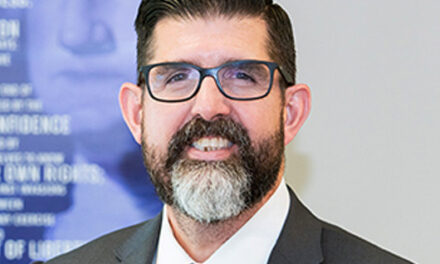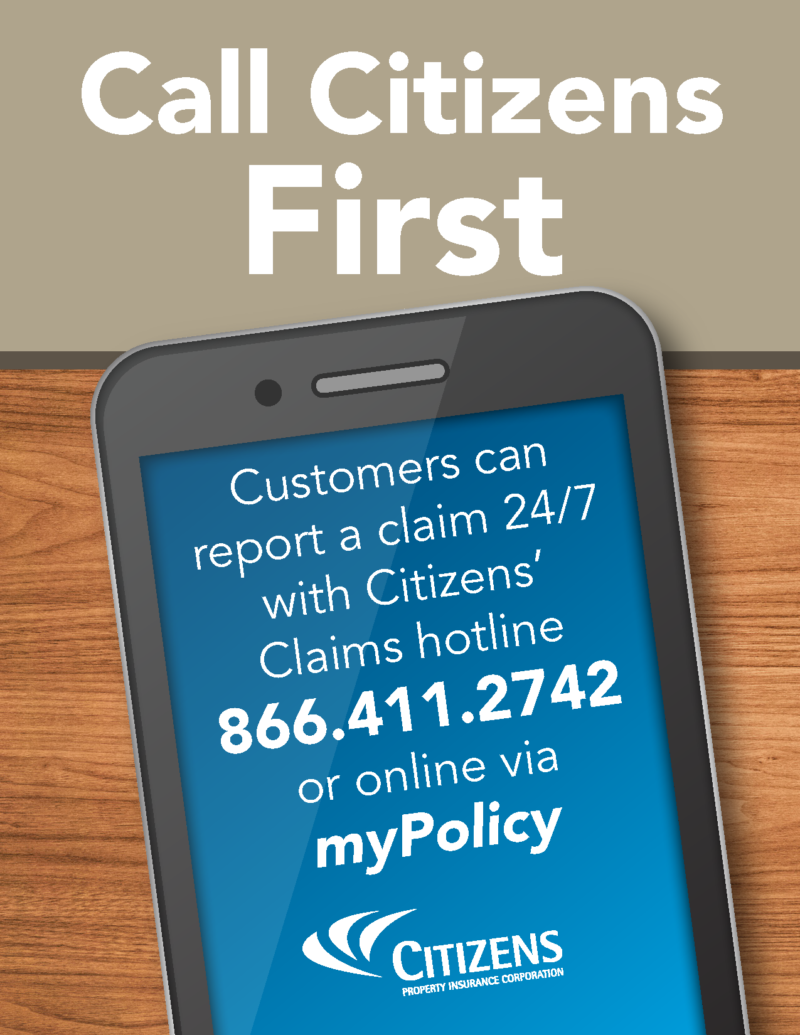
Gov. Scott Announces Major Action Plan to Keep Florida Students Safe
Remarks as Prepared for Delivery
Tallahassee, Florida – Alyssa Alhadeff, Scott Beigel, Martin Duque Anguiano, Nicholas Dworet, Aaron Feis, Jamie Guttenberg, Chris Hixon, Luke Hoyer, Cara Loughran, Gina Montalto, Joaquin Oliver, Alaina Petty, Meadow Pollack, Helena Ramsay, Alexander Schachter, Carmen Schentrup, Peter Wang.
Unfortunately, none of the plans I’m announcing today will bring any of them back, but it’s important to remember them. The seventeen lives that were cut short and all the hopes and dreams that were ruined have changed our state forever. Florida will never be the same.
Today, I am announcing a major action plan. I will be working with the legislature aggressively over the next two weeks to get it done.
This week we asked law enforcement leaders, education leaders, and health leaders from all over the state to drop what they were doing, clear their schedules, and immediately get up to Tallahassee for urgent conversations about what we can – and must do – to make our schools and communities safer. We must take care of our kids.
I can tell you that everyone said yes, and they came, and they got to work.
I have also spent a lot of time in Parkland meeting with families and students. I’ve been there nearly every day since the shooting. I have listened to their ideas to make sure this never happens again.
I also met with students who courageously came to Tallahassee to have their voices heard. What we saw in this building on Wednesday is what our democracy is about and why we live in the greatest nation on earth.
My message to them has been very simple – you are not alone. Change is coming… and it will come fast.
This is a time when I believe we must all come together, and even cross party lines. Of course, we won’t all agree on every issue, but I do believe this is a moment when our state can come together around a common sense set of actions.
I also want to encourage people to listen to each other and keep listening to each other. I’ve done a lot more listening than talking this week. Sometimes leading involves more listening than talking.
I’ve listened to things that I agree with, and to things I don’t agree with. It’s important to consider all viewpoints.
I’ve broken my action plan down into three sections. Gun laws, school safety, and mental health. We must get this done in the next two weeks.
First, on guns:
I want to make it virtually impossible for anyone who has mental issues to use a gun. I want to make it virtually impossible for anyone who is a danger to themselves or others to use a gun.
I want to create a new program in Florida – I call it the Violent Threat Restraining Order. This concept is very simple, and very common sense in my view.
This will allow a court to prohibit a violent or mentally ill person from purchasing or possessing a firearm or any other weapon when either a family member, community welfare expert or law enforcement officer files a sworn request, and presents evidence to the court of a threat of violence involving firearms or other weapons. There would be speedy due process for the accused and any fraudulent or false statements would face criminal penalties.
Let’s take a moment to look at the case of this killer. This person was not stopped from legally purchasing a weapon, was not arrested, was not detained, and was never forced to turn in his weapons.
Let’s review the warning signs here… he had 39 visits from police, his mother called him in, DCF investigated, he was kicked out of school, he was known to students as a danger to shoot people, and he was reported to the FBI last month as a possible school shooter.
And yet, he was never put on the list to be denied the ability to buy a gun, and his guns were never removed from him.
We will also strengthen gun purchase and possession restrictions for mentally ill individuals under the Baker Act. If a court involuntarily commits someone because they are a risk to themselves or others, they would be required to surrender all firearms and not regain their right to purchase or possess a firearm until a court hearing. We are also proposing a minimum 60-day period before individuals can ask a court to restore access to firearms.
Also, we will require all individuals purchasing firearms to be 21 or older. Let me repeat – we will require all individuals purchasing firearms to be 21 or older.
There will be exceptions for active duty and reserve military and spouses, National Guard members, and law enforcement.
Next, we will prohibit a person from possessing or purchasing a firearm if they are subject to an injunction for protection against stalking, cyberstalking, dating violence, repeat violence, sexual violence, or domestic violence.
We will establish enhanced criminal penalties for threats to schools, like social media threats of shootings or bombings. We will also enhance penalties if any person possesses or purchases a gun after they have been deemed by state law to not have access to a gun.
And, we will completely ban the purchase or sale of bump stocks.
The second part of my action plan provides $450 million to keep students safe.
Today, I am calling for a mandatory law enforcement officer in every public school. These law enforcement officers must either be sworn sheriff’s deputies or police officers and be present during all hours students are on campus.
The size of the campus should be a factor in determining staffing levels by the county sheriff’s office, and I am proposing at least one law enforcement officer for every 1,000 students. This must be implemented by the start of the 2018 school year.
We will also provide sheriff’s departments the authority to train additional school personnel or reserve law enforcement officers to protect students if requested by the local school board.
And, we will require mandatory active shooter training as outlined by the Department of Homeland Security. All training and code red drills must be completed during the first week of each semester in all public schools. Both faculty and students must participate in active shooter drills and local sheriff’s offices must approve and be involved in training.
We are also increasing funding in the Safe Schools Allocation to address specific school safety needs within each school district. This includes school hardening measures like metal detectors, bullet-proof glass, steel doors, and upgraded locks. The Florida Department of Education, with FDLE, will also provide minimum school safety and security standards by July 1st to all school districts.
All school safety plans must be submitted to their county sheriff’s office by July 1st each year for approval. Once all plans and requests for school hardening have been approved by the county sheriff’s office, in consultation with local police, plans will be forwarded to the Department of Education by the school district to receive any state funds.
School districts must also take all capital outlay funds received from taxpayers and use it for school hardening before it can be spent on any other capital outlay. All safe school allocations must be spent in accordance with the sheriff approved plans.
We will also require each school district that receives a Safe Schools Allocation to enter into an agreement with the local sheriff’s office, the Department of Juvenile Justice, the Department of Children and Families, the Department of Law Enforcement and any community behavioral health provider for the purpose of sharing information. That will allow us to better coordinate services in order to provide prevention or intervention strategies.
We will also establish a new, anonymous K-12 “See Something, Say Something” statewide, dedicated hotline, website and mobile app.
Next, we will establish funding to require access to dedicated mental health counselors to provide direct counseling services to students at every school. These counselors cannot serve dual roles, like teaching or academic advising. Every student must have the opportunity to meet one-on-one with a mental health professional, and receive ongoing counseling as needed.
Each school will be required to have a threat assessment team including a teacher, a local law enforcement officer, a human resource officer, a DCF employee, a DJJ employee, and the principal to meet monthly to review any potential threats to students and staff at the school.
Finally, we will require crisis intervention training for all school personnel. This training must be completed before the start of the 2018 school year.
The final part of my action plan includes $50 million in additional funding for mental health initiatives.
We must expand mental health service teams statewide to serve youth and young adults with early or serious mental illness by providing counseling, crisis management and other critical mental health services.
We are also requiring every sheriffs’ office to have a DCF case manager embedded in their department to solely work as a crisis welfare worker for repeat cases in the community. This will require 67 additional employees to be hired at DCF by July 15th.
Finally, we will provide law enforcement and mental health coordination matching grants to allow sheriffs to establish special law enforcement teams to coordinate with DCF case managers.
Before I take your questions, I want to close with this.
The goal of this plan of action is to make massive changes in protecting our schools, provide significantly more resources for mental health, and do everything we can to keep guns out of the hands of those dealing with mental problems or threating harm to themselves or others.
I know there are some who are advocating a mass takeaway of 2nd amendment rights for all Americans. That is not the answer.
Keeping guns away from dangerous people and people with mental issues is what we need to do.
I do know that some are going to accuse me of unfairly stigmatizing those who struggle with mental illness. I reject that. I am not asking them to wear a scarlet letter, nor am I unsympathetic to their plight. I have a family member who has dealt with these issues. It is hard on them and it is hard on the family.
But, what I am saying is no one with mental issues should have access to guns.
It’s common sense, and it is in their own best interest, not to mention the interests of our communities.
And much of what I’m proposing involves giving law enforcement the ability to stop people from harming themselves and others, while giving them the tools to keep our schools safe.
We know for certain that we cannot simply rely on the current federal background check system.
This killer should not have been able to purchase or even possess a weapon.
And we know that the federal government can’t even be counted on to investigate or act on serious and credible threats as we saw with the FBI’s complete failure.
It’s obvious we can’t trust the federal process which is why we have to make these changes here in Florida.
I’m an NRA member, a supporter of the 2nd amendment, and the 1st amendment, and the entire bill of rights for that matter. I’m also a father, and a grandfather, and a Governor.
We all have a difficult task in front of us… balancing our individual rights with our obvious need for public safety.
But of course, some will say it’s too much, and some will say it is not enough. I respect everyone’s opinion, and I don’t ridicule those who disagree with me. An open dialogue is crucial.
But, I will not accept the old, tired political notion that we don’t have enough time to get anything done. Government does not have to be slow or lethargic. And when it comes to protecting our schools and our kids, we need to be swift and decisive.
I also understand that I am proposing half a billion dollars for school safety and mental health initiatives.
But let me be clear – there is nothing more important than the safety of our children. Our kids deserve nothing less. Fortunately, our economy is booming, and we have the resources to protect our schools and our students.
And, if providing this funding means we won’t be able to cut taxes this year – so be it.
And, if we have to give up some of the projects we all hold near and dear – so be it.
We are all elected to come to Tallahassee to represent the best interests of Floridians. And, today, there is nothing more important than to do all we can to make sure a horrific and evil act like the Parkland shooting never happens again.
To read the Governor’s full major action plan, click HERE.
*Governor’s full major action plan:
Keeping Guns Away from Dangerous and Violent People
• Create the “Violent Threat Restraining Order” which will allow a court to prohibit a
violent or mentally ill person from purchasing or possessing a firearm or any other weapon
when either a family member, community welfare expert or law enforcement officer files a
sworn request and presents evidence to the court of a threat of violence involving firearms
or other weapons. There would be speedy due process for the accused and any fraudulent
or false statements would face criminal penalties;
• Strengthen gun purchase and possession restrictions for mentally ill individuals
under the Baker Act. If a court involuntarily commits someone for treatment under the
Baker Act because they are at risk of harming themselves or others, an individual would be
required to surrender all firearms and not regain their right to purchase or possess a
firearm until a court hearing. A minimum 60-day period would be established before
individuals can ask a court to restore access to firearms;
• Prohibit a person from possessing or purchasing a firearm if they are subject to an
injunction for protection against stalking, cyberstalking, dating violence, repeat violence,
sexual violence, or domestic violence;
• Require all individuals purchasing firearms to be 21-years-old or over. Exceptions
include active duty and reserve military and spouses, National Guard members, and law
enforcement;
• Establish enhanced criminal penalties for threats to schools, such as social media
threats of shootings or bombings, and enhance penalties if any person possesses or
purchases a gun after they have been deemed by state law to not have access to a gun;
and
• Ban purchase or sale of bump stocks.
$450 Million Proposal to Keep Students Safe
• Mandatory School Resource Officers in every public school. These law enforcement
officers must either be sworn sheriff’s deputies or police officers and be present during all
hours students are on campus. The size of the campus should be a factor in determining
staffing levels by the county sheriff’s office, and Governor Scott is proposing at least one
officer for every 1,000 students. This must be implemented by the start of the 2018 school
year;
• Provide sheriffs’ departments the authority to train additional school personnel or
reserve law enforcement officers to protect students if requested by the local school
board;
• Require mandatory active shooter training as outlined by the Department of
Homeland Security. All training and code red drills must be completed during the first
week of each semester in all public schools. Both faculty and students must participate in
active shooter drills and local sheriff’s offices must be involved in training;
• Increase funding in the Safe Schools Allocation to address specific school safety needs
within each district. This includes school hardening measures like metal detectors, bullet-
proof glass, steel doors, and upgraded locks. The Florida Department of Education
(DOE), in conjunction with FDLE, will provide minimum school safety and security
standards by July 1, 2018, to all school districts;
• Require each school district that receives a Safe Schools Allocation to enter into a
Memorandum of Understanding (MOU) with the local sheriff’s office, the Florida
Department of Juvenile Justice (DJJ), the Florida Department of Children and Families
(DCF), the Florida Department of Law Enforcement (FDLE) and any community behavioral
health provider for the purpose of sharing information to coordinate services in order to
provide prevention or intervention strategies;
• Establish a new, anonymous K-12 “See Something, Say Something” statewide,
dedicated hotline, website and mobile app.;
• Establish funding to require access to dedicated mental health counselors to
provide direct counseling services to students at every school. These counselors
cannot serve dual roles, such as teaching or academic advising. Every student must have
the opportunity to meet annually one-on-one with a mental health professional, and receive
ongoing counseling as needed;
• Require each school to have a threat assessment team including a teacher, a local law
enforcement officer, a human resource officer, a DCF employee and DJJ employee, and
the principal to meet monthly to review any potential threats to students and staff at the
school; and
• Require crisis intervention training for all school personnel. This training must be
completed before the 2018 school start date.
*NOTE: All school safety plans as outlined above must be submitted by each public school to
their County Sheriff’s Office, by July 15, 2018, for approval. Once all plans and requests for
school hardening have been approved by the county sheriff’s department, in consultation with
local police jurisdictions, plans can be submitted by the school district to DOE for schools to
receive any state funds. School districts must also take all capital outlay funds received from
taxpayers and use these funds for school hardening before it can be spent on any other capital
outlay. This must be approved by the sheriff’s department and submitted to DOE by August 1,
2018.
$50 Million Proposal for Mental Health Initiatives
• Expand mental health service teams statewide to serve youth and young adults with
early or serious mental illness by providing counseling, crisis management and other
critical mental health services;
• Require every sheriffs’ office to have a DCF case manager embedded in their
department to solely work as a crisis welfare worker for repeat cases in the community.
This will require 67 additional employees to be hired at DCF by July 15, 2018; and
• Provide law enforcement and mental health coordination matching grants to allow
sheriffs to establish special law enforcement teams to coordinate with DCF case managers
as outlined above.
Story from Florida Governors Office














